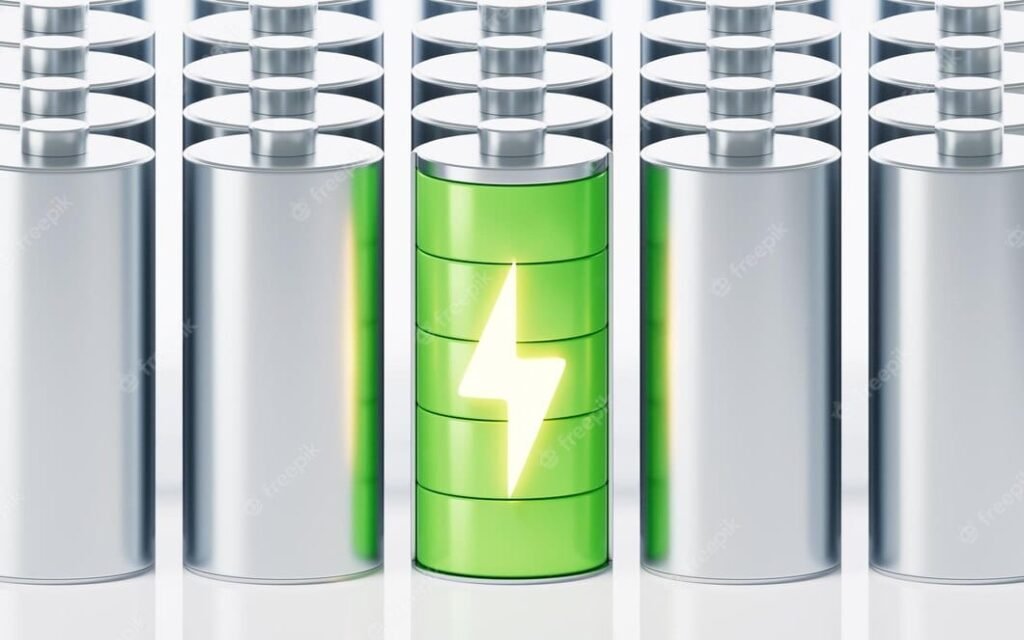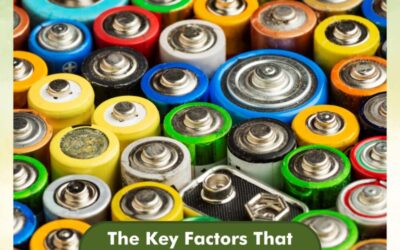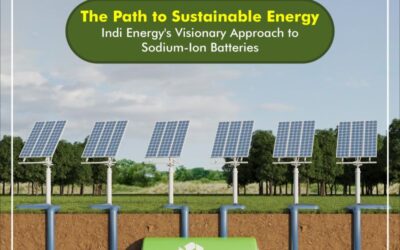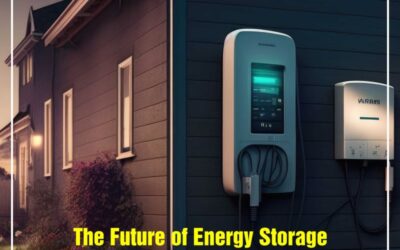
With Indi Energy gaining National and International recognition for the sustainable revolution brought on by their Sodium-ion Batteries, let’s explore the sodium-ion batteries a bit more in detail.
In our quest for sustainable battery storage solutions, sodium ion batteries have begun to stand out because, finally, we have started questioning the price we are paying for the dominance of lithium-ion batteries. What has led to this? There are several concerns about lithium mining, safety, and recyclability.
On the other hand, if you consider sodium-ion batteries, first and foremost, we are leveraging the abundant sodium on Earth, and adding to that the environmentally friendly sourcing, cost-efficiency, long cycle life, and outstanding safety features, you can see why sodium-ion batteries are leading the charge to revolutionize the energy storage landscape. Today, through this post, we are going to give a bit more explanation about how sodium-ion batteries operate and the recent developments in the global sodium-ion battery landscape.
What are sodium-ion batteries made of?
The name pretty much gives it away, but the specific materials for sodium ion batteries tend to vary from producer to producer. Although the materials differ, no matter the sodium-ion battery manufacturer, all of them consist of four components: Anode, Cathode, Electrolyte, and Separator.
The name pretty much gives it away, but the specific materials for sodium ion batteries tend to vary from producer to producer. Although the materials differ, no matter the sodium-ion battery manufacturer, all of them consist of four components: Anode, Cathode, Electrolyte, and Separator.
thermal stability over some of the aforementioned cathode materials. Meanwhile, for the anode, we have the world’s highest-performing Hard Carbon (BioBlackTM), once again developed indigenously from biowaste! Likewise, our sustainable liquid sodium-ion electrolyte also has significant advantages over commonly available solid-state and liquid electrolytes found in contemporary storage technologies such as lead-acid, alkaline, zinc-carbon, and lithium-ion batteries. It possesses superior temperature stability and electrochemical properties while simultaneously delivering exceptional performance. Our proprietary liquid sodium-ion electrolyte holds the potential to revolutionize the clean energy industry.
How do sodium-ion batteries operate?
The cathode is based on a sodium-containing material and releases sodium ions upon being charged and discharged, while hard carbon, which is a non-graphitizable, non-crystalline, and amorphous carbon, is responsible for intercalating sodium ions during charging and releasing them during discharging.

The electrolyte is the one that ensures this energy keeps flowing, and depending on what kind the manufacturers use, there can be two kinds of electrolytes: liquid and solid-state.
In liquid electrolytes, sodium salts are dissolved in a solvent, while solid-state materials consist of ceramic or polymer-based materials that conduct sodium ions. And finally, it’s the separator, which is basically a porous membrane that physically separates the anode and cathode, preventing direct contact between the electrodes, reducing the risk of short circuits, and ensuring safety.
Sodium-ion batteries operate similarly to their lithium-ion counterparts, given that both elements have a single valence electron in their outermost shells. The correlation between valence electrons and the performance of lithium-ion and sodium-ion batteries is indirect, which we will put aside for now because, soon, we will post an entire blog focusing on this.
What is evident, though, is that sodium-ion batteries possess several advantages over traditional lithium-ion batteries apart from the one we mentioned before, namely, energy efficiency and the ability to maintain reliable performance across a wide range of temperatures, which makes them much better suited for applications that undergo varying temperature changes.
Recent Updates from the Sodium-Ion Battery Industry
- One of the most significant pieces of news came from IDTechEx, who in their report predicted that by 2025, around 10 GWh of sodium-ion batteries will be installed as manufacturing capacities start coming online and existing lithium-ion plants are converted to sodium-ion production.
- EY Parthenon has shared that in the next decade, a large part of the Indian market will comprise smaller sub-10 kWh batteries, and this is a ready-made use case for sodium-ion batteries as it is a low-cost and sustainable alternative.
- Chinese EV maker JAC recently unveiled the world’s first sodium-ion battery-powered JAC EV. It features a 25-kWh battery and can travel 250 km on a single charge. Other Chinese automotive giants like BYD and Chery are also planning to introduce sodium-ion batteries in their cars in 2023.
The Way for the Future
The journey of Sodium-ion batteries is mirroring that of lithium-ion batteries, with them slowly and steadily gaining recognition, acceptance, and adoption. However, the advantages offered by sodium-ion technology over other contemporary storage solutions available on the market have made it an extremely formidable contender in the energy storage market.
The future of battery technology lies in sustainable solutions that minimize our environmental impact while maximizing performance. And this is exactly where Indi Energy, based in Roorkee, India, is shining!
We are manufacturing high-performing Sodium-ion batteries and customized Sodium-ion battery packs that are fabricated through sustainable practices and the use of proprietary technology, which has set us up as the pioneers in the energy storage technology domain. Our customized sodium-ion battery packs have been created primarily to meet and fulfill the automotive industry’s growing needs. With our recent presence at the famed VivaTech 2023, car manufacturers have already begun to show growing interest in our technology.
Imagine an EV that is actually sustainable! That’s what Indi Energy is offering the world!
Want to know more? Have any queries? Reach out to us and let the sustainability juggernaut: Indi Energy’s Sodium-ion batteries pave the way for a cleaner, greener future!






